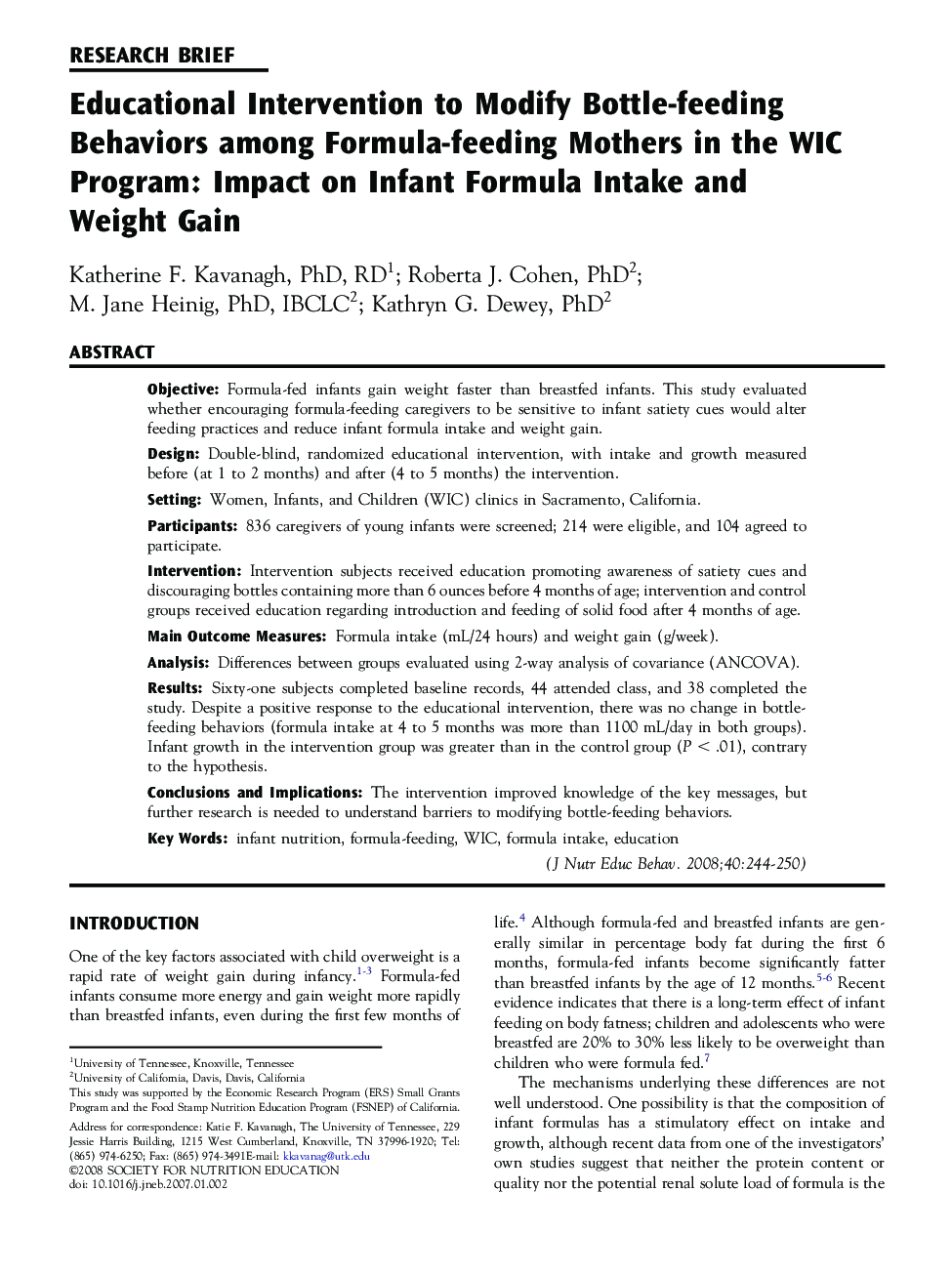| Article ID | Journal | Published Year | Pages | File Type |
|---|---|---|---|---|
| 362607 | Journal of Nutrition Education and Behavior | 2008 | 7 Pages |
ObjectiveFormula-fed infants gain weight faster than breastfed infants. This study evaluated whether encouraging formula-feeding caregivers to be sensitive to infant satiety cues would alter feeding practices and reduce infant formula intake and weight gain.DesignDouble-blind, randomized educational intervention, with intake and growth measured before (at 1 to 2 months) and after (4 to 5 months) the intervention.SettingWomen, Infants, and Children (WIC) clinics in Sacramento, California.Participants836 caregivers of young infants were screened; 214 were eligible, and 104 agreed to participate.InterventionIntervention subjects received education promoting awareness of satiety cues and discouraging bottles containing more than 6 ounces before 4 months of age; intervention and control groups received education regarding introduction and feeding of solid food after 4 months of age.Main Outcome MeasuresFormula intake (mL/24 hours) and weight gain (g/week).AnalysisDifferences between groups evaluated using 2-way analysis of covariance (ANCOVA).ResultsSixty-one subjects completed baseline records, 44 attended class, and 38 completed the study. Despite a positive response to the educational intervention, there was no change in bottle-feeding behaviors (formula intake at 4 to 5 months was more than 1100 mL/day in both groups). Infant growth in the intervention group was greater than in the control group (P < .01), contrary to the hypothesis.Conclusions and ImplicationsThe intervention improved knowledge of the key messages, but further research is needed to understand barriers to modifying bottle-feeding behaviors.
